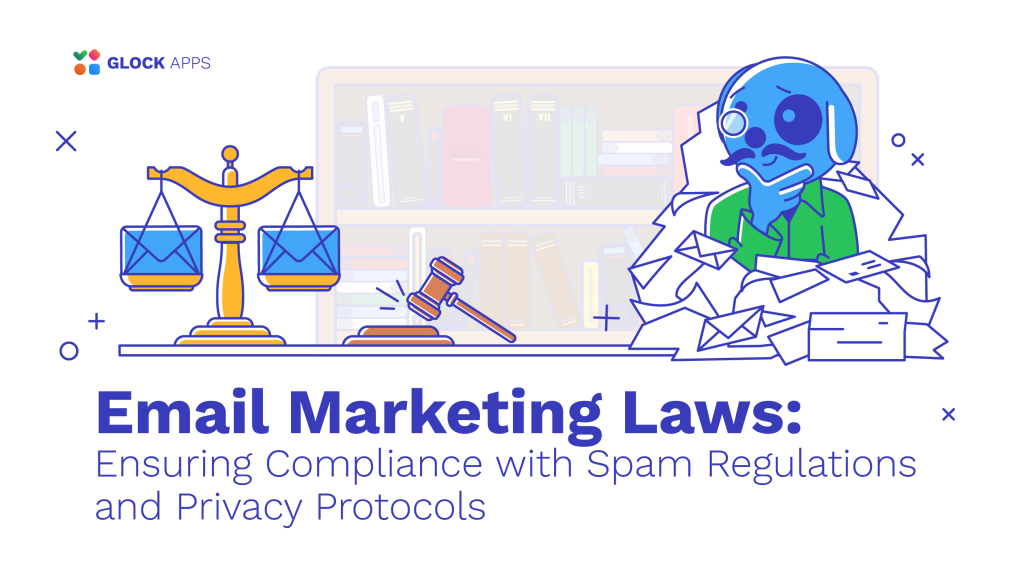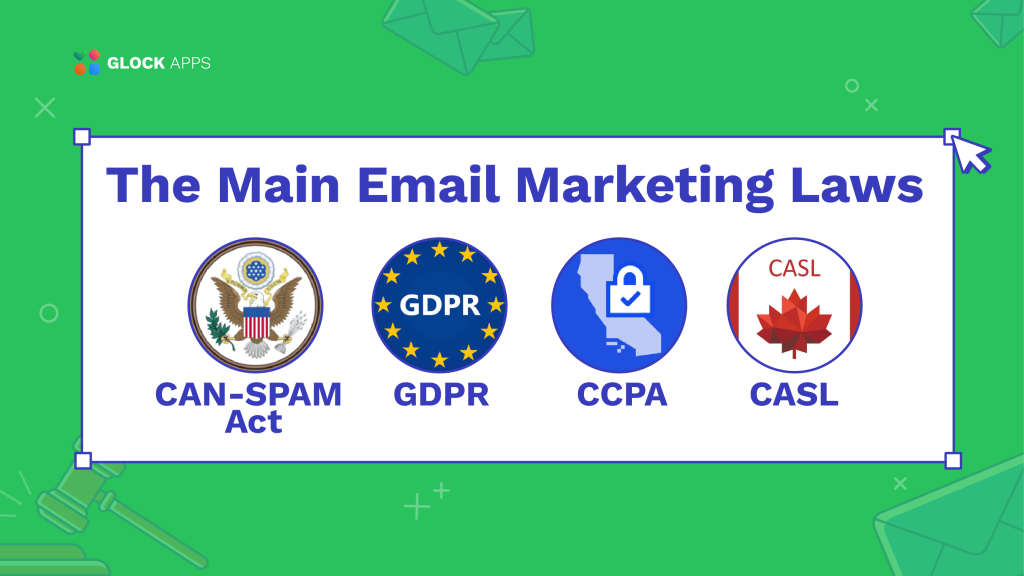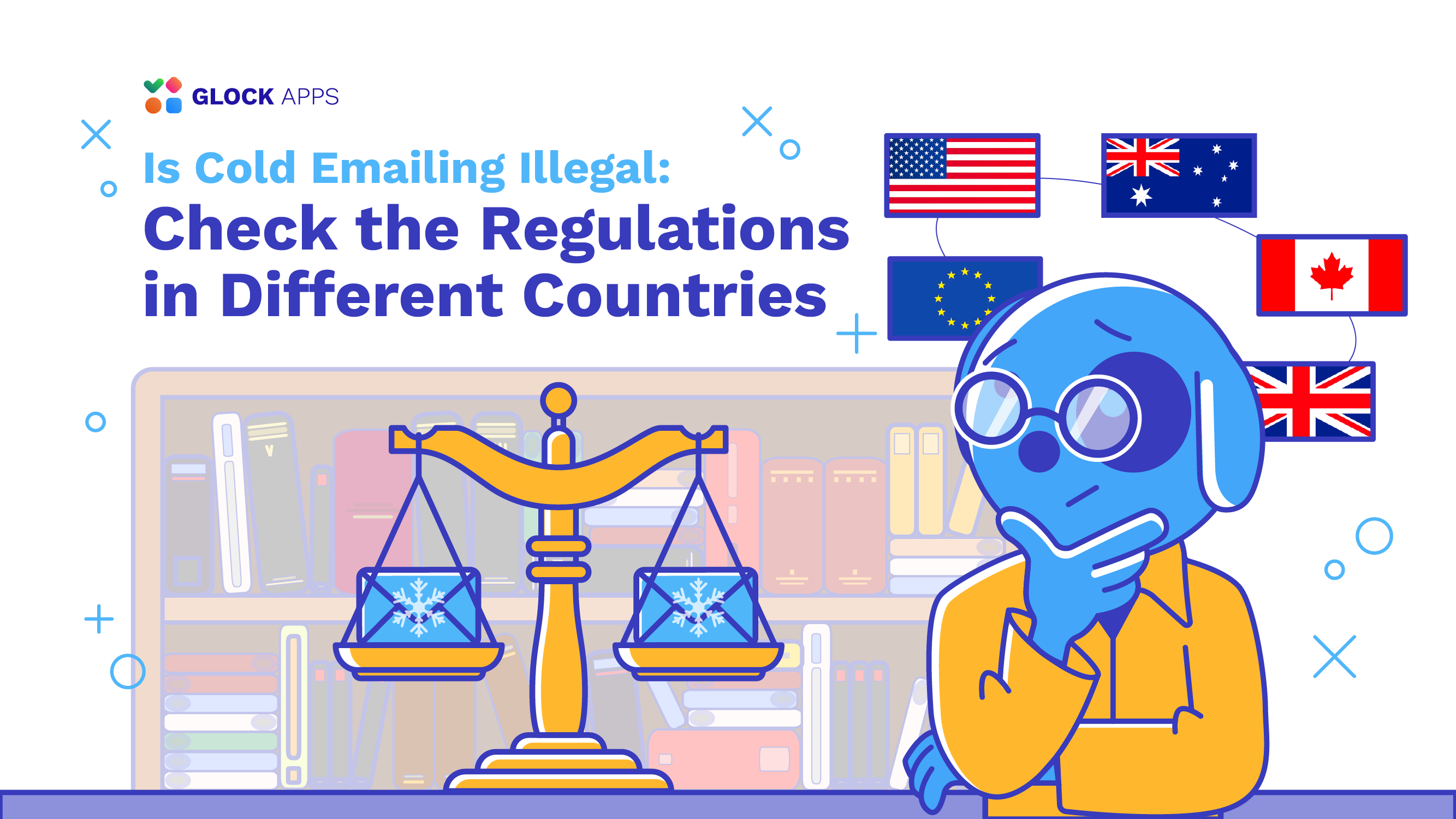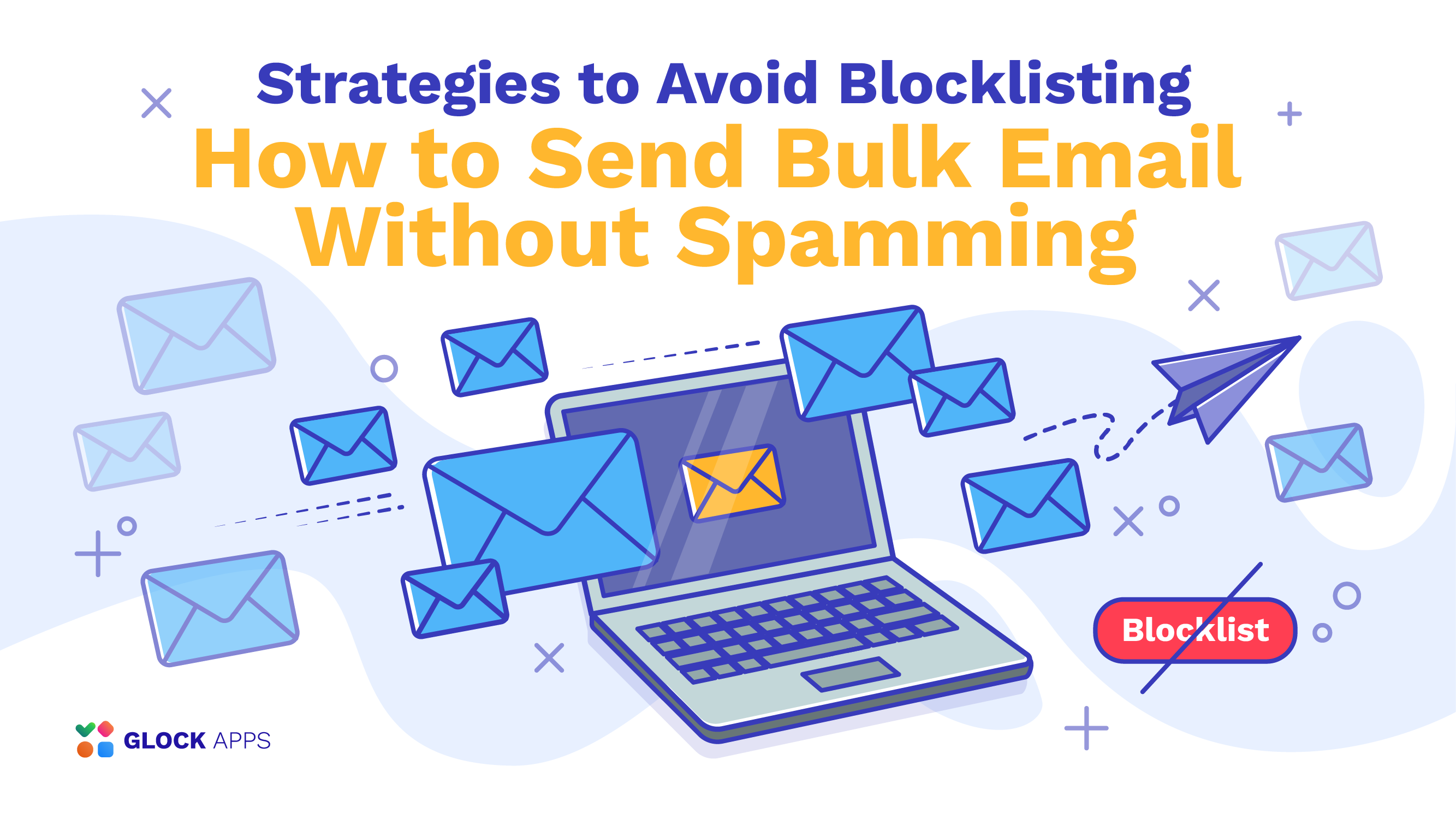Email Marketing Laws: Ensuring Compliance with Spam Regulations and Privacy Protocols

Table of contents
The fear of breaking some rules probably haunts people in any industry, because it’s our human nature to avoid getting into trouble. And email marketers are no exception, as they don’t want to suddenly run into a legal problem they didn’t expect before sending each new campaign.
Although email marketing has long been a familiar and popular tool for businesses of all categories, it has its own legal complexities that can throw even the most experienced marketers into doubt. To save you the hassle and worry, in this article, we’ll dive into the legal nuances of email marketing and what you need to know to be compliant with the law.
Email Marketing and The Law
Professionals from different countries need to know the rules of the email marketing game and do their job professionally, avoiding legal pitfalls.
Email marketing operates within a legal framework designed primarily to protect user privacy and prevent spam. These laws aim to ensure the ethical and legal use of email marketing methods, requiring companies to obtain consent before sending marketing emails and giving recipients the option to opt-out.
Can You Send Marketing Emails Without Consent?
The legality of sending marketing emails without consent is a frequently asked question, the answer to which is no, is generally not recommended and may be illegal in many jurisdictions. Although laws vary by country, most developed countries require companies to obtain explicit consent from recipients before sending marketing emails.
Failure to comply with these laws often results in significant penalties, including fines and damage to your reputation. In such situations, having a business structure like an LLC especially one formed with the assistance of a professional registered agent service can be particularly beneficial, as it helps protect your personal assets from business liabilities. Agree that it’s better to avoid unwanted legal consequences, maintain a positive relationship with your audience, and follow the email marketing rules in your area.
What Are the Primary Email Marketing Regulations?

The path to complying with many data protection and privacy laws is complex, especially due to the need to adapt to individual countries. However, several key pieces of legislation have laid the foundation for global digital privacy and data protection standards.
These include the well-known CAN-SPAM Act, GDPR, CCPA, and CASL laws. Adherence to these regulations allows email marketers to ensure compliance with the laws that apply to their audience without having to delve into the nitty-gritty of each country’s laws.We have already created an informative article for you with a detailed description of the laws governing cold emailing in different countries, you can find it here. And now let’s go through the basic laws that every clever specialist should know by heart:
CAN-SPAM
The CAN-SPAM Act, enacted in 2003 in the U.S., regulates commercial emails to ensure transparency, honesty, and user control. It is fair to point out that It was created only to improve the email-sending process and customer experience, not to prohibit marketers from sending commercial messages. All you need to do is follow the rules to ensure that your email marketing complies with the terms of the law.
Here are the key points about the CAN-SPAM Act:
- This law requires that commercial emails include clear and accurate information about the sender, including a valid “From” line and a recognizable sender name.
- The use of false or misleading header information, subject lines, and routing information in commercial e-mails is prohibited.
- It requires commercial emails to be clearly identified as advertising. This requirement provides transparency and allows recipients to distinguish between advertising messages. In addition, it is necessary that the physical address of the sender should be included in the email for additional openness of the origin of the message.
- The Act mandates that commercial emails provide recipients with a clear and conspicuous mechanism to opt out of receiving emails from the sender in the future.
- Email marketers are required to respond promptly to opt-out requests, usually within 10 business days, and ensure that recipients are removed from mailing lists.
- The CAN-SPAM Act applies not only to promotional emails but also to transactional or relationship messages, such as order confirmations and account notifications, that contain commercial content.
- Companies must monitor the activities of third parties, which means that hiring a third-party company for marketing does not relieve the customer of legal responsibility. In case of violation, all parties will be responsible.
- It authorizes the Federal Trade Commission (FTC) to enforce the Act and initiate legal action against violators by imposing civil penalties and seeking injunctions to stop deceptive or unfair practices.
This law was adopted more than two decades ago, but its relevance is still very important in today’s world. Laws like the CAN-SPAM ACT help both companies stay transparent about their mailings and help consumers receive better mailings by protecting their rights and controlling their privacy. Compliance with this Act is crucial for maintaining a positive reputation with both email service providers and recipients, improving deliverability rates, and avoiding legal consequences.
GDPR
The General Data Protection Regulation (GDPR) sets strict requirements for email marketing activities to ensure the protection of individuals’ personal data. In particular, for email marketing, the GDPR provides for the following:
- Companies must obtain express consent from individuals before sending them marketing emails. Consent should be willingly provided, clearly defined, informed, and unequivocal. Pre-checked boxes or implied consent are not considered valid forms of consent under the GDPR.
- Organizations must provide clear and transparent information about the purposes for which individuals’ email addresses are collected and how their data will be used for marketing purposes. This information should be easily accessible and understandable.
- According to the GDPR, email marketing relies on clear consent mechanisms. Consent is important when customers actively agree to receive emails. Conversely, an opt-out allows customers to easily withdraw their consent. Individuals have the right to withdraw their consent to receive marketing emails at any time. Organizations should provide easy-to-use mechanisms, such as unsubscribe links, through which individuals can opt out of receiving further marketing communications. Pre-checked boxes do not constitute valid consent. Clear consent and opt-out processes empower customers and help companies build trust while avoiding legal issues.
- The sender should collect and process only the personal data necessary to send marketing emails and should avoid collecting redundant or irrelevant information that is not directly related to its marketing purposes.
- Appropriate technical and organizational measures should be implemented to ensure the security of the personal data of individuals used for email marketing, including measures to prevent unauthorized access, disclosure, modification, or destruction of data.
- Businesses must be responsible for complying with the GDPR’s e-marketing requirements, such as keeping consent records, documenting data processing activities, and implementing privacy policies and procedures.
- If organizations transfer personal data outside the European Economic Area (EEA) for email marketing purposes, they must put in place appropriate safeguards to protect the data during the transfer process. This may include using standard contractual clauses or obtaining express consent from individuals.
- Interestingly, the GDPR has changed the way companies approach segmentation and targeting in email marketing, as it requires explicit consent to the processing of personal data, which requires a reassessment of data collection practices to ensure compliance.
From this, it can be understood that compliance with the GDPR is extremely important for email marketers in ensuring legality, transparency, and respect for individual privacy rights. It is obvious that non-compliance with its requirements can lead to severe sanctions, namely fines and damage to reputation.
CCPA
The CCPA imposes strict guidelines for email marketing compliance in California, emphasizing consumer rights to data transparency, deletion, opt-out, and non-discrimination.
The CCPA and the GDPR have a lot in common. In some sense, if you are compliant with the GDPR, you are already compliant with most of California’s consumer privacy laws. However, there are some key differences between the two, including the fact that the CCPA has a broader definition of personal data that covers information related to a consumer or household. Unlike the GDPR, the CCPA includes data that is indirectly linked to individuals. This includes various types of data, including images, purchase history, media consumption, and geolocation. For email marketers, personal information goes beyond email addresses and includes data on email activity. Publicly available data, such as government records, does not fall under the CCPA’s definition of personal information.
To maintain compliance:
- Businesses must inform California consumers about the methods of collecting, processing, and sharing their data.
- Consumers have the right to request the deletion of their data, including data collected by third parties.
- Companies should make it easier for consumers to request the disclosure or removal of information by offering several available methods.
- A privacy policy that complies with the CCPA requirements must specify methods for submitting requests, response times, identity verification procedures, and grounds for denying requests.
- Consumers can opt out of the sale of their personal information, and businesses must respect their requests and provide clear opt-out instructions.
- Companies cannot discriminate against consumers exercising their rights under the CCPA, including denying them goods or services or offering them a different price or quality.
The CCPA may not directly apply to email marketing, but it does apply because email addresses and related data fall within its definition of personal information. To maintain compliance, you should carefully evaluate the requirements of this law with your email marketing practices. Key aspects to consider include providing clear notices and choices for consumers about data use and rights, enabling opt-out mechanisms for both data sharing and marketing emails, and protecting collected email addresses.
Also, review the privacy policies of third parties, ensure that service providers comply with the CCPA, and limit email use to specified purposes. Finally, promptly comply with consumer requests to remove or unsubscribe from emails, notifying third parties of these actions as appropriate.
CASL
CASL (Canadian Anti-Spam Law), enacted in 2014, governs commercial electronic messages (CEMs) sent to or from Canada, with strict compliance requirements and potential fines for violations.
To be compliant with CASL, companies must ensure that all commercial electronic messages meet three basic requirements:
- Recipients must consent to receive the marketing communication.
- Sender identification must be provided, including a valid mailing address.
- A clear and functional unsubscribe process must be offered.
- Here are the key points of CASL compliance for email marketers:
- CASL applies not only to emails but also to text messages and other forms of personal communication, making it broader in scope than the CAN-SPAM Act.
- CEM is a message that is primarily intended to encourage action with a commercial element, such as offers, promotions, and calls for cooperation. However, not all messages qualify as CEMs; transactional emails, such as purchase receipts, are exempt.
- Compliance requires obtaining direct or indirect consent from recipients. Explicit consent requires an explicit affirmative action, while implied consent may be inferred from an existing business relationship. However, implied consent expires after two years without further interaction.
- To obtain explicit consent, marketers should avoid pre-checkboxes and instead offer incentives such as discounts or exclusive content. It is crucial to make sure that email addresses are obtained ethically without resorting to email harvesting.
- Keeping thorough records of consent and communication interactions is essential to demonstrate compliance with CASL requirements. Good record-keeping not only helps self-assessment but also facilitates cooperation in the event of complaints or investigations.
By following these CASL guidelines, email marketers can reduce the risk of penalties, ensure email deliverability, and maintain ethical standards in their communications with Canadian recipients.
Learn more: How to Create an Email Marketing Strategy: Step-by-Step Guide
Summarizing
To summarize, every company should understand that compliance with email marketing laws is the first and foremost thing when creating their campaigns. We’ve broken down the main laws and reasons why it’s important to monitor the legal nuances and take the necessary steps to comply with them while maintaining the trust and respect of your audience.
Don’t underestimate the importance of staying up-to-date on these policies as they protect your company and consumers from breaches of privacy protocols and data leaks.
Disclaimer:
Please note that this blog post is offered solely for informational purposes and should not be construed as legal advice. For legal advice related to your specific circumstances, we recommend that you consult with a qualified lawyer.
FAQs
Yes, email marketing is legal, but it must comply with various laws and regulations governing data privacy and electronic communications. These include, among others, the CAN-SPAM Act in the United States, CASL in Canada, the GDPR in the European Union, and the CCPA in California. Adherence to these laws ensures that your business is ethical, and transparent, and respects recipients’ rights to privacy and consent.
Yes, it is illegal in many jurisdictions, including Canada, under the Canadian Anti-Spam Legislation (CASL) to send commercial electronic messages without the recipient’s permission. This authorization is commonly referred to as “consent”. CASL requires that senders obtain explicit or implicit consent from recipients before sending CEPs, and failure to comply with these consent requirements can result in significant penalties, including fines. In addition, other countries and regions, such as the European Union under the General Data Protection Regulation (GDPR), follow similar rules governing consent for email marketing.
Yes, having a Privacy Policy for email marketing is important. It helps inform recipients about how your company collects, uses, and protects their personal data. This transparent approach builds subscribers’ trust in your company and demonstrates that you are compliant with privacy regulations such as GDPR and CCPA.
Yes, you can send marketing messages to your customers, but you must comply with relevant rules and regulations, obtain clear consent, provide opt-out options, and follow email marketing best practices.
The main opt-in rules for email marketing include obtaining explicit consent from individuals before sending them marketing emails, providing clear information about what they are opting into, keeping the consent process voluntary and not pre-checked, and giving people an easy way to unsubscribe from receiving messages in the future. These policies are designed to guarantee that recipients have control over their inboxes and only receive emails they have agreed to receive.



